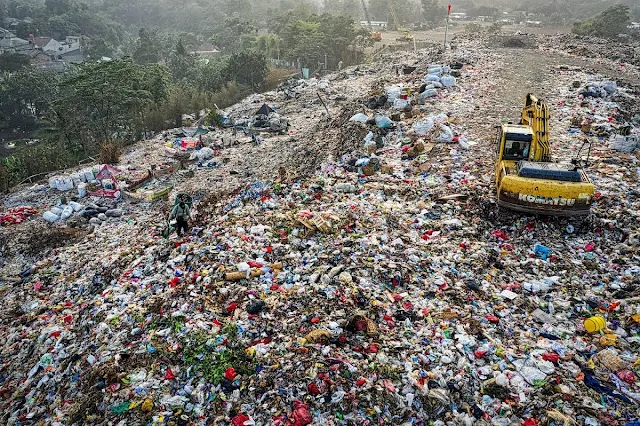
Nowadays, the ocean has become a garbage soup due to plastic pollution. Most of the debris floating on water is plastic, and it poses a danger to marine life. Animals can confuse the plastic as prey and get tangled up in the trash. The main problem with plastic is its non-biodegradable nature. Therefore, it sticks around longer than any other type of waste. Getting rid of plastic usage in your home is one way of saving the environment.
Plastic lasts up to 1,000 years, and most of it originates from land. The waste plastic gets to the water through rivers or even streets during storms and heavy rain. To protect our planet, you should donate on apps like milkywire and track your donation's impact. The app enables you to choose the cause that can lead to a cleaner planet. Through the app, you can follow the progress and view the impacts of your donation.
Marine Ecosystems: How They Work
Marine ecosystems are responsible for the life of marine animals. All marine life is crucial since it ensures that there is no carbon dioxide build-up in the world. Animals like the plankton absorb the carbon dioxide in the air and release oxygen. Without proper protection of the marine ecosystem, such species might become extinct. Some of the crucial marine ecosystems that boost marine life are coral reefs and estuaries. They provide shelter and breeding territories for marine animals.Without the ecosystem, there won't be enough marine food, causing more danger to all species. Pollution is the main threat to the marine ecosystem. It leads to more carbon dioxide within the air, thus melting the ice caps. In return, there is a decrease in the salinity levels and a rise in the ocean levels. A drop in salinity levels is a threat to marine life because saltwater species can't survive in a freshwater rich environment.
Impacts of Plastic in the Marine Ecosystem
There's an array of species in the ocean that call it home. Most of these species are succumbing to poison from plastics. An example is a gray whale that died in 2010 with a golf ball, 20 plastic bags, and other types of waste in its stomach. A survey by the UN unveils that more than 800 species are affected by plastic pollution worldwide. When these animals become entangled in plastic waste, they can drown, starve, and suffocate.Plastic is inescapable in our daily lives because it's used in making almost everything. It is a durable material, and unless it's burned, most of the manufactured plastic still exists. Plastic pollution is rising because most of it is made for single use. Such types of plastic include straws, water bottles, and plastic carrier bags. The ocean is largely affected by plastic since it acts like a large sink that traps all types of plastic waste.
Avoid Single-Use Plastics
To start reducing plastic pollution, you should consider avoiding single-use plastics. These are plastics that you use once and discard. One way of achieving this is refusing to use these plastics as long as you don't need them. Refusing these plastics lets businesses know that some clients require alternatives for these plastics. Another option is purchasing reusable versions of these plastics. The third option is recycling these plastics to help keep them out of the ocean.By recycling plastic, you ensure that there is no new plastic in circulation. Consider looking up the different places where you can recycle plastic near you. Learning about the local recycling centers guarantees that you know about the types of plastics that they recycle. After working on yourself and the measures you have to undertake, you should spread the word. You can achieve this by either supporting plastic bans or participating in local beach and river cleanups.
Be Mindful with Plastic Pollution
There are many ways of polluting the environment using plastics. For example, you might use balloons at a party. These plastics are harmful to the environment and marine life. Being mindful about everything you do ensures that you assist in negating the further spread of plastic pollution. Take some time to reevaluate your needs and understand all the products that you have to avoid. After understanding how to deal with pollution, you can progress in sorting your waste efficiently.Ways of Curbing Plastic Pollution
Because plastic is ubiquitous, it's necessary to consider the best ways of curbing plastic pollution. Spreading awareness is amongst the best ways of achieving the end goal. The more people know about plastic pollution and its impact on the marine ecosystem, the more they observe the best measures. Even if the plastic is a useful material, you should consider attaining plastic that's reusable and is easily recyclable. Therefore, you can start by clearing the beach, streets, and nature.Volunteering
There are many ways that you can volunteer to negate plastic pollution. One of them is donating to non-profit organizations that assist with curbing the usage of plastic. Most of these organizations spread awareness and help people limit their plastic usage. In return, people can live a plastic-free lifestyle. Other organizations fight extinction, thus securing the lives of marine species. Some good initiatives include the Take 3 project, where people leave with three pieces of trash from the beach.If you're not one to collect trash from your neighborhood or beach, you should consider making donations. Apps like milkywire enable you to impact plastic pollution by working on sustainable development goals. These biosphere goals aid with providing clean water, taking climate action, and enhancing the life on land and life below water. You can opt to make these donations monthly to ensure a lasting impact. Furthermore, it also works if you want to support more causes.
